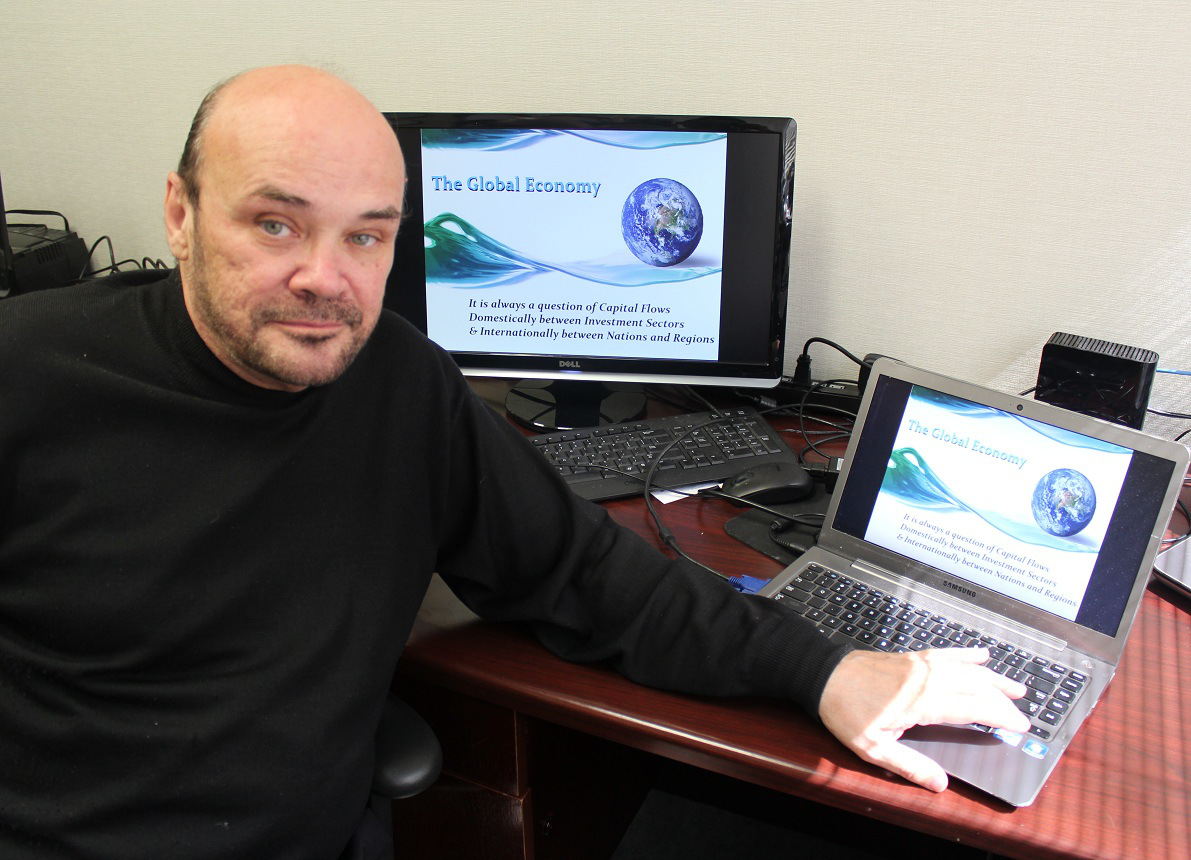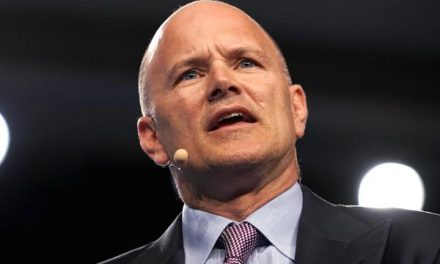Martin Armstrong believes the Fed is trapped, it can’t exit its liquidity injection program, known as quantitative easing (QE).
The controversial market forecaster and trader, Martin Armstrong recently warned that the crisis in the Repo market, where short term interest rates spiraled in September, suggests that the Fed can’t withdraw from its QE program.
Martin Armstrong’s advice has been sought by numerous governments. He uses his own created Economic Confidence Model (also called the “pi” cycle) in his forecasting.
Martin Armstrong has a string of successful forecasts under his belt. He predicted the 1987 stock market crash, the Russian financial crisis of 1998 and the subprime crisis of 2008.


“Martin Armstrong has a string of successful forecasts under his belt. He predicted the 1987 stock market crash, the Russian financial crisis of 1998 and the subprime crisis of 2008”
Martin Armstrong’s latest forecast is that the Fed is trapped
“The Fed Is Trying To Stop Global Economic Contagion”, Martin Armstrong warned.
“The Fed is trapped. If it stops (injecting money into the Repo market by billions of dollars daily), interest rates will rise,” he added.
The crisis in the Repo market last September is the crux to Martin Armstrong believes the Fed is trapped view
In mid-September, the Repo rates spiked to 10% and for a market with a daily turnover of $3 trillion that is significant and has the potential of financial contagion.

“The Fed Is Trying To Stop Global Economic Contagion”
MARTIN ARMSTRONG
A crisis in the Repo market would spread to other tentacles of the financial system, with the flow of capital eventually grinding to a halt.
So the Fed had no choice but to enter the market and buy short maturity bonds.
Why?
When the Fed buys bonds that increase the price of those bonds and pushes down its corresponding yields, bearing in mind that bond prices move in the opposite direction to its yield.
Put simply, risk in the market is pricing yields higher, hence the spike in yields in the Repo market and the Fed is desperately trying to keep yields low by being the buyer of last resort.
With global debt levels at historic highs, a spike in rates would trigger debt defaults so Martin Armstrong believes the Fed is trapped
“The Bank of Japan came out and said we’re going to buy government bonds unlimited. They, too, are trying to prevent interest rates from rising,” said Martin Armstrong. “The ECB cannot afford rates to go up,” he added.
Martin Armstrong believes the Fed is trapped to prevent financial contagion, a liquidity squeeze spreading to other tentacles of the financial system
“This is a global contagion that’s developing, and it’s pretty serious. The rise in interest rates has tremendous implications around the globe,” said Martin Armstrong.
“Interest rates are rising because there is increased risk – period” he added.
“The only bubble forming in financial markets is in sovereign debt” – Jamie Dimon
Martin Armstrong believes the Fed is trapped because sovereign debt poses the highest risk
The big risk is global governments, including the US, according to Martin Armstrong.
So the Fed has to keep buying the debt that other investors are rejecting because of the low yields. If the Fed withdrew from QE, yields would spike, which would make servicing the debt more expensive, and that would raise the risk of a sovereign debt default. Governments can’t afford sovereign yields to rise because the deficit is growing exponentially as the population ages, unfunded liabilities are rising and income tax revenues are dwindling from an ever-shrinking workforce. The pampered low US unemployment rate hides the record low labor force participation rates.
I believe other governments are doing the same.
The sovereign debt bubble was also recently highlighted by JPMorgan Chase CEO Jamie “The only bubble forming in financial markets is in sovereign debt” said Jamie Dimon.
Martin Armstrong is not alone in believing that sovereign debt is in a bubble
Moreover, Martin Armstrong believes the Fed is trapped and what flows next is big shifts in capital flows. “You have to understand, at some point in time, capital begins to figure out who is the greatest risk, and the risk is government. At that stage in the game, when that point is reached, then you have shifted. The capital will move from public types of investments, such as government bonds and things of that nature, and then will move into the private sector. That’s equities, and that can be gold and real estate in different places. You try to go to tangible assets,” said Martin Armstrong.
“What can go wrong is that they lose the game. They are doing this to try to prevent interest rates from rising. If they did not do this, the short term rate would be up dramatically” – Martin Armstrong
What could go wrong if Martin Armstrong believes the Fed is trapped in the Repo market and cannot stop liquefying bad debt?
“What can go wrong is that they lose the game. They are doing this to try to prevent interest rates from rising. If they did not do this, the short term rate would be up dramatically” said Martin Armstrong.
What happens if the Fed continues to fuel the Repo market with cheap money but interest rate rise anyway? So Martin Armstrong believes the Fed is trapped and in the worst-case scenario, it loses control and the market’s trust.
Martin Armstrong then fires a warning shot across the bow.
“They have already lost control, otherwise they wouldn’t be doing this” he said.
Since September Fed can’t get out of the Repo market because interest rates are a factor of future inflation and risk. Global capital sees risk and is pushing interest rates up.
“They are trying to keep rates down. If the Fed loses, rates are going to go up, and you are going to see this in the Treasury auctions. Then it won’t matter what the Fed is trying to do in the Repo market. The government will have to start paying higher prices. This is what’s going to take place” warned Martin Armstrong.
Martin Armstrong believes the Fed is trapped and it is a global event
This is a global contagion and, seriously, the rise in interest rates has tremendous implications around the globe. You have emerging markets around the globe borrowing dollars, so as the dollar goes up they end up going into default. Martin Armstrong believes that cash is still king in this environment.















